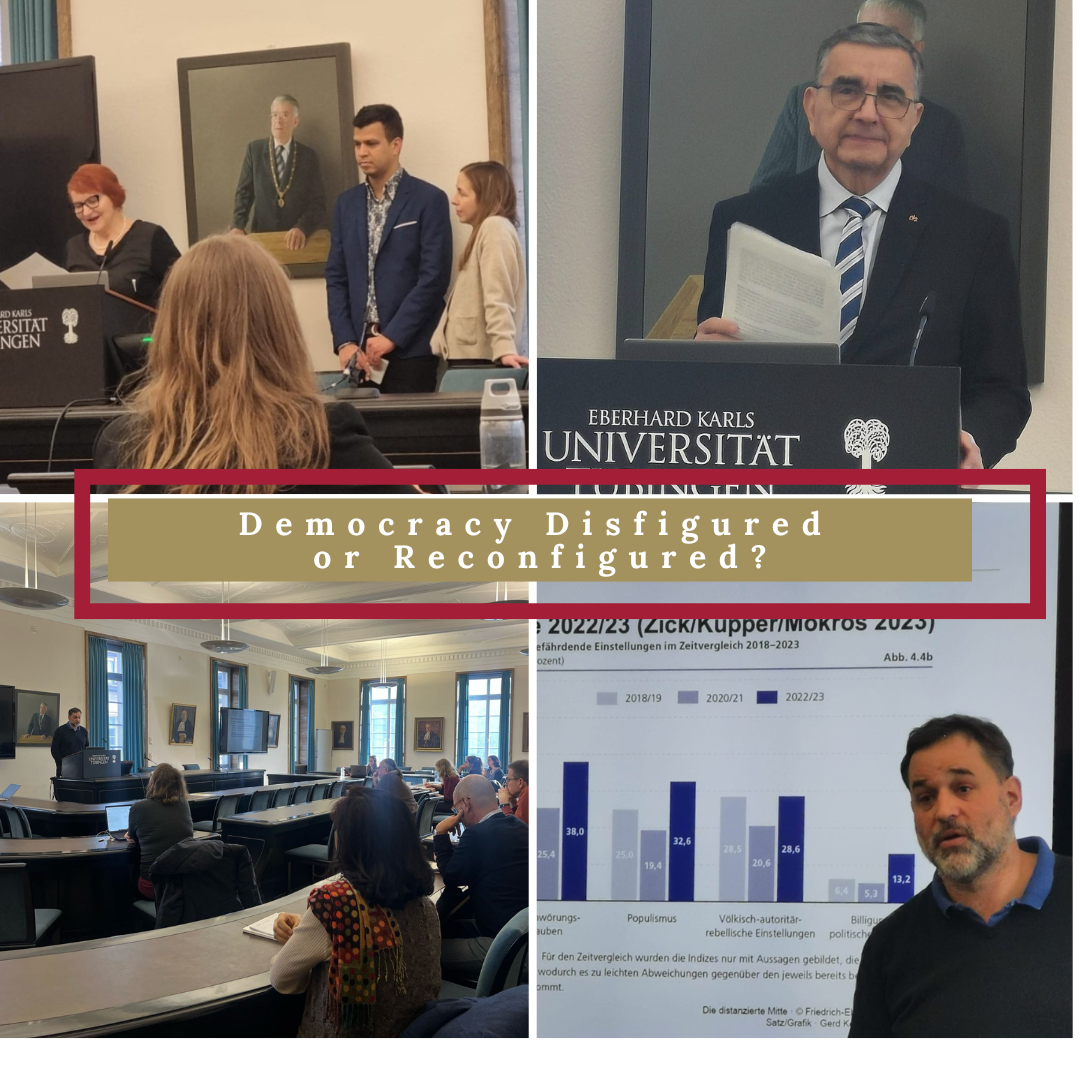14.03.2025
Post-Event Reflections: Democracy Disfigured or Reconfigured?
On February 20-21, 2025, the University of Tübingen hosted the academic workshop "Democracy Disfigured or Reconfigured? Political Imaginaries, Popular Participation, and Social Change in the Americas," bringing together international experts to discuss political transformations across the Americas.
The event fostered interdisciplinary debates on the rise of right-wing populism, the erosion of democratic norms, and the spread of disinformation. Researchers from Europe, North America, and South America analyzed how these changes impact democratic institutions and social imaginaries.
The workshop was a significant step in strengthening an international research network focused on democratic transformations in the context of contemporary populism. It reaffirmed the University of Tübingen’s commitment to global dialogue and research excellence. We greatly value the insightful discussions and look forward to furthering this academic exchange in future gatherings.
The workshop featured distinguished scholars who enriched the discussions on democratic transformations in the Americas. Dr. Carlos de la Torre (University of Florida) analyzed the similarities and differences between fascism and populism, highlighting their construction of a unified people and leadership embodiment, while differing in their use of violence and legitimacy strategies. Dr. Elina I. Hartikainen (University of Oslo) explored how Evangelical Christians in Brazil have appropriated liberal discourses on religious freedom to justify illiberal political agendas, thereby destabilizing liberal politics. Dr. Rodrigo Patto Sá Motta (Universidade Federal de Minas Gerais) compared radical right-wing discourses in Brazil and the United States between 2016 and 2024, focusing on the impact of conservatism and neoliberalism on democratic institutions. Dr. Ana Grondona (University of Buenos Aires) examined the process of individualization and its relation to contemporary authoritarianism, drawing on the ideas of sociologist Gino Germani to map current crises.
Dr. Luciana Chamorro (University of Michigan) analyzed the transformation of Nicaragua's revolutionary left tradition into a populist form, discussing how this shift has obscured late-stage capitalism's contradictions and displaced political struggle. Dr. Juan Carlos Rodríguez-Raga (Universidad de los Andes) presented data from the AmericasBarometer-LAPOP on Latin American youth's democratic attitudes over the past two decades, highlighting gender differences and evolving perspectives. Dr. Andreza de Souza Santos (King's College London) investigated Brazilian youth's propensity to pursue military careers during times of crisis, considering factors like job insecurity and the militarization of bureaucracy during Bolsonaro's administration. Dr. Rocío Bravo (University of Tübingen) studied how religious diversification in Oaxaca's indigenous communities has led to conflicts reconfiguring democratic participation and resource allocation within communal governance. Finally, Dr. René Ramírez Gallegos (CLACSO, UNAM) analyzed the emergence of right-wing ideologies in Latin America and the Caribbean from a political economy perspective, proposing strategies to resist authoritarian neoliberalism and advance towards a democracy centered on the demos. These contributions offered critical and enriching perspectives on democratic transformations in the Americas.
Organized by the PACT: Populism and Conspiracy Theory project (funded by the ERC) and the Baden-Württemberg Centre for Brazil and Latin America, the workshop was supported by the Fritz Thyssen Stiftung, the Institut für Rechtsextremismusforschung (IRex), and the College of Fellows.

